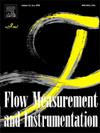偏转板射流伺服阀先导级流场建模及性能分析方法
IF 2.3
3区 工程技术
Q2 ENGINEERING, MECHANICAL
引用次数: 0
摘要
偏导射流伺服阀(DJSV)是现代液压控制系统中的关键部件,因其响应速度快、可靠性高而广泛应用于航空航天、工业自动化和精密机械等领域。先导级作为伺服阀的核心部件,将力矩电机发出的位移信号转化为压力信号,驱动动力级滑阀运动,起着至关重要的作用。然而,DJSV先导级流场结构复杂,涉及多个能量转换阶段,现有研究缺乏完整的数学模型来准确描述其性能。这一局限性阻碍了伺服阀优化设计和性能分析。为了解决这一问题,本文提出了一种新的DJSV先导级流场建模和性能分析方法。根据先导级的工作原理和射流过程中能量传递和转换的机理,将先导级射流划分为5个不同的阶段,建立了流场的数学模型。分析了先导阶段性能及关键结构参数对先导阶段性能的影响,建立了先导阶段性能与关键结构参数之间的映射关系。通过中试阶段的压力特性试验,验证了所提方法的正确性。该模型对优化伺服阀设计、缩短开发时间、提高系统性能具有重要的实用价值。本文章由计算机程序翻译,如有差异,请以英文原文为准。
The flow field modeling and performance analysis method for the pilot stage of deflector jet servo valve
The deflector jet servo valve (DJSV) is a critical component in modern hydraulic control systems, widely used in aerospace, industrial automation, and precision machinery due to its high response speed and reliability. The pilot stage, as a core component of the servo valve, plays a crucial role in converting the displacement signal from the torque motor into the pressure signal to drive the movement of the power stage spool valve. However, the pilot stage flow field structure of the DJSV is intricate, involving multiple phases of energy conversion, and existing studies lack a complete mathematical model that can accurately describe its performance. This limitation has hindered the optimization of servo valve design and performance analysis. To address this gap, this paper proposes a novel method for modeling and performance analysis of the pilot stage flow field of the DJSV. Based on the working principles of the pilot stage and the mechanisms of energy transfer and conversion during the jet flow process, the pilot stage jet flow is divided into five distinct phases to develop a mathematical model of the flow field. Furthermore, the performance of the pilot stage and the influence of key structural parameters are analyzed, then a mapping relationship between them is established. This paper conducted a pressure characteristic test of the pilot stage to verify the correctness of the proposed method. The proposed model offers significant practical value for optimizing servo valve design, reducing development time, and improving system performance in various industrial applications.
求助全文
通过发布文献求助,成功后即可免费获取论文全文。
去求助
来源期刊

Flow Measurement and Instrumentation
工程技术-工程:机械
CiteScore
4.30
自引率
13.60%
发文量
123
审稿时长
6 months
期刊介绍:
Flow Measurement and Instrumentation is dedicated to disseminating the latest research results on all aspects of flow measurement, in both closed conduits and open channels. The design of flow measurement systems involves a wide variety of multidisciplinary activities including modelling the flow sensor, the fluid flow and the sensor/fluid interactions through the use of computation techniques; the development of advanced transducer systems and their associated signal processing and the laboratory and field assessment of the overall system under ideal and disturbed conditions.
FMI is the essential forum for critical information exchange, and contributions are particularly encouraged in the following areas of interest:
Modelling: the application of mathematical and computational modelling to the interaction of fluid dynamics with flowmeters, including flowmeter behaviour, improved flowmeter design and installation problems. Application of CAD/CAE techniques to flowmeter modelling are eligible.
Design and development: the detailed design of the flowmeter head and/or signal processing aspects of novel flowmeters. Emphasis is given to papers identifying new sensor configurations, multisensor flow measurement systems, non-intrusive flow metering techniques and the application of microelectronic techniques in smart or intelligent systems.
Calibration techniques: including descriptions of new or existing calibration facilities and techniques, calibration data from different flowmeter types, and calibration intercomparison data from different laboratories.
Installation effect data: dealing with the effects of non-ideal flow conditions on flowmeters. Papers combining a theoretical understanding of flowmeter behaviour with experimental work are particularly welcome.
 求助内容:
求助内容: 应助结果提醒方式:
应助结果提醒方式:


